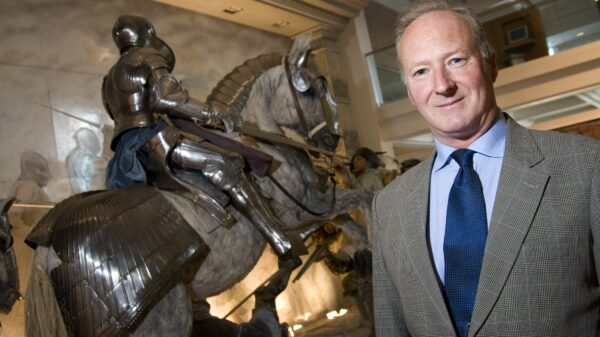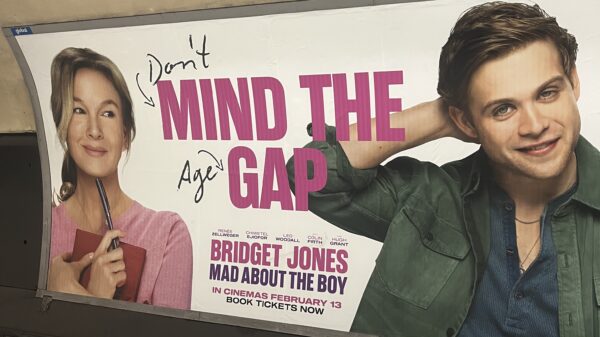Staff Writer Leah Napier- Raikes reviews new prequel ‘Wonka’ exploring its sweeter moments alongside its bitter truths.
Released on December 8th, Warner Bros.’ ‘Wonka’ tells the story of Roald Dahl’s character, Willy Wonka, making this film a new addition to the recent cinema trend of remakes, prequels, and sequels to pre-existing franchises. With Disney’s upcoming releases including titles such as ‘Snow White’, ‘Jungle Book 2’, and ‘Tinker Bell’, this trend of reusing existing characters and plots that audiences are already familiar with, in my opinion, doesn’t insight much personal interest. However, upon hearing there was a new film to be released entailing the backstory behind the famous (or infamous) chocolate factory that came to be, my interest was piqued, imagining the ways this story could be retold.
Previous Adaptations
When I think about ‘Charlie and the Chocolate Factory’, I am taken back to my experience as a child watching the 2005 adaptation, seeing Johnny Depp’s characterization of a genius entrepreneur who holds an unsettling and uncanny demeanor. While I also appreciate Gene Wilder’s interpretation of this character in the as iconic and enjoyable classic to watch, I refer to Dahl’s stating he found Wilders’s performance of the character “pretentious” and was reportedly frustrated by the film’s musical score, for being “sappy” and “overly sentimental”.
I hold Burton’s take on this classic novel as having a more accurate depiction of the story Dahl told in the original novel, which preserves the darkness in the story that is somewhat lost in the original movie, to create a heartfelt family classic. As the outlier of the franchise, however, ‘Wonka’ (2023) tells a new story of the character Willy Wonka, with how he built up his factory and shared his talent with the world.
While I found the film an overall good watch, casting familiar faces from British cult classics such as ‘Peep Show’, and ‘Horrible Histories’, I struggled not only with the lack of depth in Timothee Chalamet’s portrayal but also the general plotline. With this film being the third adaptation of Dahl’s classic character, I was hoping that the need to revive this character who has not been touched since 2005 stemmed from a compelling reason, to reveal a new angle of the already-been-told character’s story– I was disappointed. Instead, ‘Wonka’ tells a generic story, using the character to escape the need to establish a new character and story that is well-received by audiences.
Controversial History
One of the key events in the original child’s novel is that Dahl alludes to how Willy Wonka discovers the materials from which he manufactures his signature chocolate, and more importantly ‘employs’ the Oompa-Loompas. In Dahl’s original version, the Oompa-Loompas were starving African pygmies, living on a mash of green caterpillars and tree bark until being “rescued” by Willy Wonka, who proceeds to smuggle the entire tribe out away from Africa in packing crates to live and work for him in his chocolate factory. This incited plenty of criticism in its day, namely from the National Association for the Advancement of Colored People (NAACP), stating that the story depicted African Pygmies “from the very deepest and darkest part of the jungle where no white man had ever been before”, resulting in Dahl later revising the description of the Oompa-Loompas to being white to prevent any racial stereotyping resulting from the characters.
While Dahl changed the description of the Oompa Loompas, their exploitative, and very real, origin remains at the core of the story, with Wonka smuggling them from their home to work at his factory where they are restricted only to living inside as they exchange their labour for cocoa beans, while Willy Wonka earns real profit. The production of chocolate has historically been due to slavery, with the commodity being identified with the colonial world of Central America, the Caribbean, and West Africa, specifically because of Britain’s interests there. Even today, millions of West African children, especially in Ghana and Cote d’Ivoire, are exploited through the cocoa trade, with many living “on little food, little or no pay, and endure regular beatings.” It is estimated that approximately half of the world’s chocolate comes from the labor of exploited children. These facts make the tale of Willy Wonka smuggling a tribe to make chocolate purely to his advantage a lot darker.
‘Wonka’ (2023) lightly brushes upon the fact that Wonka did not necessarily have the right to the materials from those indigenous to where he collected the cocoa beans that supplied his company, with a comical Hugh Grant as an Oompa Loompa ritually taking Willy’s chocolates from him, reasoning this because “he did it first”. I was interested to see how this would lead, however not much else develops from this point in the film, and after this, we see no more acknowledgement of the dynamics created in the story of Wonka and the Oompa Loompas, and in fact, Chalamet’s version of Wonka is practically a squeaky clean, surface level character with no depth other than wanting to make chocolate and help his friends, which I find outrageously contradictory to the original point of the character and the story as a whole. Dahl found Wilder’s portrayal of the eccentric chocolate maker dissatisfactory, despite being a loved and esteemed performance, as the film did not encapsulate the unsettling and dark undertones intended in the novel. If he disliked Wilder’s Wonka, I dread to imagine how he would react viewing the 2023 adaptation.
A Missed Opportunity
While I am personally tired of the recent recurring theme in cinema of reusing characters and stories, I do believe the concept of how Willy Wonka began his company to genuinely be a story worth being told with a lot of potential. Using an existing franchise can be effective when there actually is a story and message to be conveyed, an example of this for me is ‘Puss in Boots: The Last Wish’ which was one of my favourite films released in 2023. I don’t think anybody was awaiting a sequel to a film based on a side character from ‘Shrek’ that was released in 2011, however, this film proved itself to be a story worth telling, conveying a message on appreciating the present and valuing life and loved ones, while developing great new characters alongside the old and overall being a truly memorable watch.
Overall, ‘Wonka’ was fun and cheerful, and being a film aimed at younger audiences I can understand the value of a light-hearted, whimsical story. However, this felt like a waste of the character and this story could have been told without the involvement of Dahl’s character. In my opinion, a prequel to ‘Charlie and the Chocolate Factory’ would’ve been better used in a film akin to ‘The Lorax’ (2012), which told Dr Seuss’s story of a man with an innovative vision being persuaded by the greed of capitalism to exploit the environment, and being an overall unreliable character, reflecting the issues we face today with corporate greed. A prequel telling the story of how the chocolate factory began that resembled ‘The Lorax’s use of a well-intentioned character succumbing to selfishness and corruption in the pursuit of expanding his company, telling the story from the Oompa-Loompa’s perspective and criticising his practices would have justified the revival of the character. The story of Willy Wonka and his creations were never intended to be flowery and romantic, and despite being a fun family watch, that was not the intention of the character or what the story ever was, which is what made the film overall a miss for me.
















